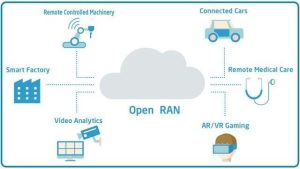
 |
When updating databases, using a blue/green deployment technique is an appealing option for users to minimize risk and downtime. This method of making database updates requires two database environments—your current production environment, or blue environment, and a staging environment, or green environment. You must then keep these two environments in sync with each other so you may safely test and upgrade your changes to production.
Amazon Aurora and Amazon Relational Database Service (Amazon RDS) customers can use database cloning and promotable read replicas to help self-manage a blue/green deployment. However, self-managing a blue/green deployment can be costly and complex to build and manage. As a result, customers sometimes delay implementing database updates, choosing availability over the benefits that they would gain from updating their databases.
Today, we are announcing the general availability of Amazon RDS Blue/Green Deployments, a new feature for Amazon Aurora with MySQL compatibility, Amazon RDS for MySQL, and Amazon RDS for MariaDB that enables you to make database updates safer, simpler, and faster.
With just a few steps, you can use Blue/Green Deployments to create a separate, synchronized, fully managed staging environment that mirrors the production environment. The staging environment clones your production environment’s primary database and in-Region read replicas. Blue/Green Deployments keep these two environments in sync using logical replication.
In as fast as a minute, you can promote the staging environment to be the new production environment with no data loss. During switchover, Blue/Green Deployments blocks writes on blue and green environments so that the green catches up with the blue, ensuring no data loss. Then, Blue/Green Deployments redirects production traffic to the newly promoted staging environment, all without any code changes to your application.
With Blue/Green Deployments, you can make changes, such as major and minor version upgrades, schema modifications, and operating system or maintenance updates, to the staging environment without impacting the production workload.
Getting Started with Blue/Green Deployments for MySQL Clusters
You can start updating your databases with just a few clicks in the AWS Management Console. To get started, simply select the database that needs to be updated in the console and click Create Blue/Green Deployment under the Actions dropdown menu.

You can set a Blue/Green Deployment identifier and the attributes of your database to be modified, such as the engine version, DB cluster parameter group, and DB parameter group for green databases. To use a Blue/Green Deployment in your Aurora MySQL DB cluster, you should turn on binary logging, changing the value for the binlog_format parameter from OFF to MIXED in the DB cluster parameter group.

When you choose Create Blue/Green Deployment, it creates a new staging environment and runs automated tasks to prepare the database for production. Note, you will be charged the cost of the green database, including read replicas and DB instances in Multi-AZ deployments, and any other features such as Amazon RDS Performance Insights that you may have enabled on green.
You can also do the same job in the AWS Command Line Interface (AWS CLI). To perform an engine version upgrade, simply add a targetEngineVersion parameter and specify the engine version you’d like to upgrade to. This parameter works with both minor and major version upgrades, and it accepts short versions like 5.7 for Amazon Aurora MySQL-Compatible.
$ aws rds create-blue-green-deployment –blue-green-deployment-name my-bg-deployment –source arn:aws:rds:us-west-2:1234567890:db:my-aurora-mysql –target-engine-version 5.7 –region us-west-2
After creation is complete, you now have a staging environment that is ready for test and validation before promoting it to be the new production environment.
When testing and qualification of changes are complete, you can choose Switch over in the Actions dropdown menu to promote the staging environment marked as Green to be the new production system.

Now you are nearly ready to switch over your green databases to production. Check the settings of your green databases to verify that they are ready for the switchover. You may also set a timeout setting to determine the maximum time limit for your switchover. If Blue/Green Deployments’ switchover guardrails detect that it would take longer than the specified duration, then the switchover is canceled, and no changes are made to the environments. We recommend that you identify times of low or moderate production traffic to initiate a switchover.

After switchover, Blue/Green Deployments does not delete your old production environment. You may access it for additional validations and performance/regression testing, if needed. Please note that it is your responsibility to delete the old production environment when you no longer need it. Standard billing charges apply on old production instances until you delete them.

Now Available
Amazon RDS Blue/Green Deployments is available today on Amazon Aurora with MySQL Compatibility 5.6 or higher, Amazon RDS for MySQL major version 5.6 or higher, and Amazon RDS for MariaDB 10.2 and higher in all AWS commercial Regions, excluding China, and AWS GovCloud Regions.
To learn more, read Using Amazon RDS Blue/Green Deployments for database updates in the AWS documentation. Give it a try, and please send feedback to AWS re:Post for Amazon RDS or through your usual AWS support contacts.
– Channy
Originally posted on November 29, 2022 @ 1:01 pm

